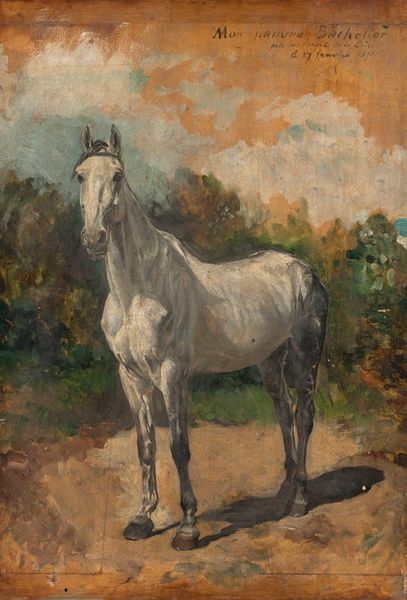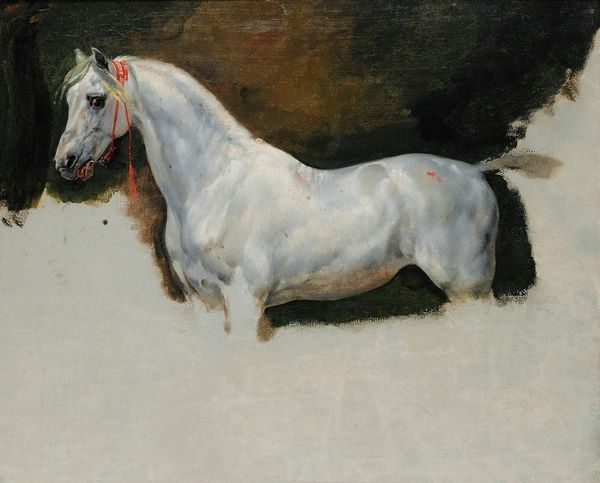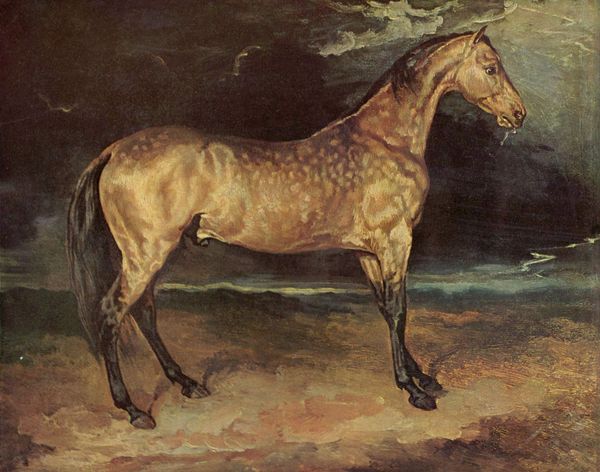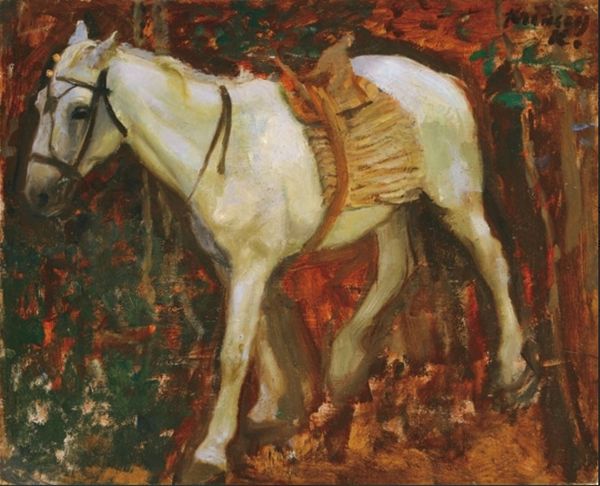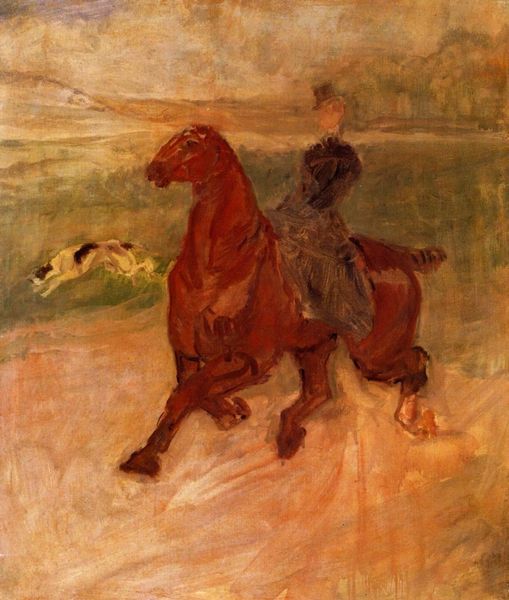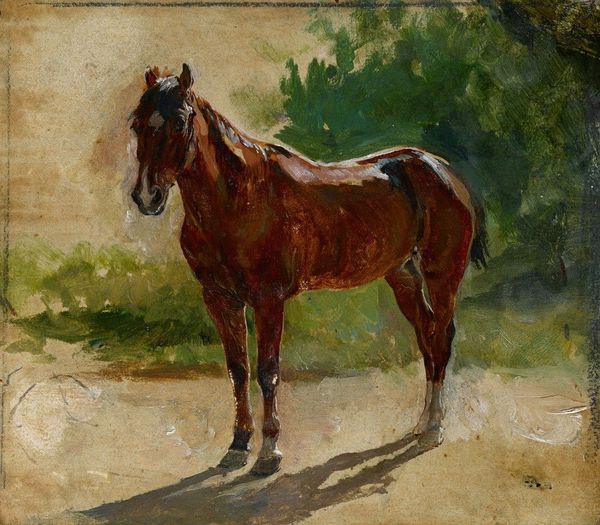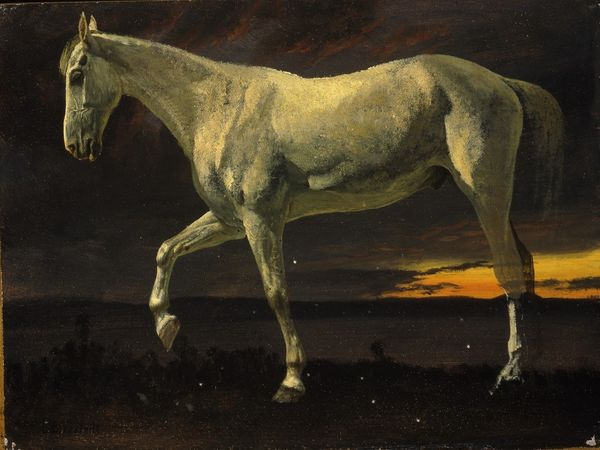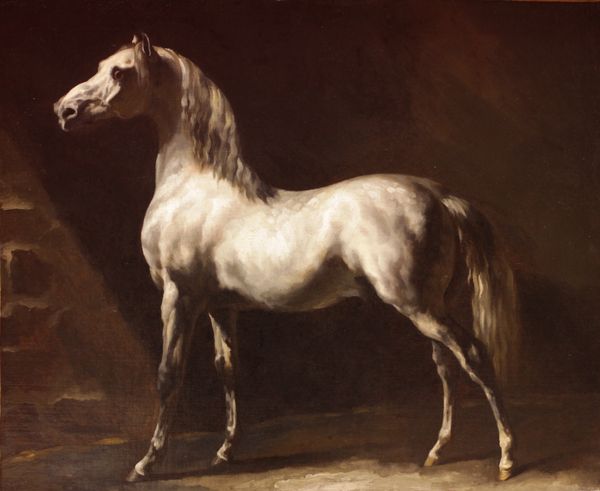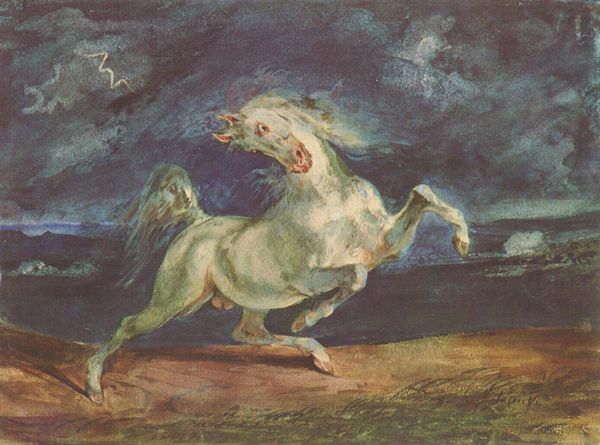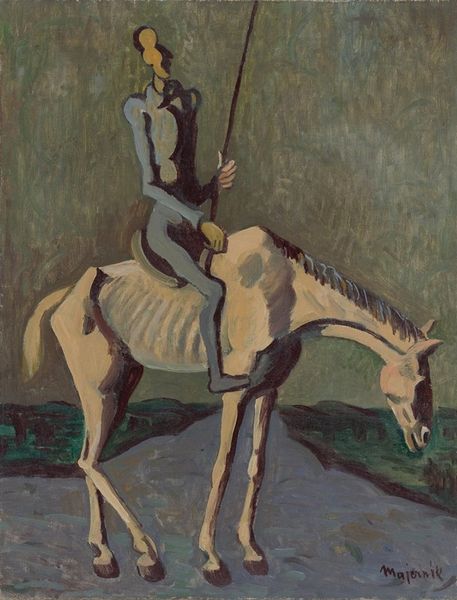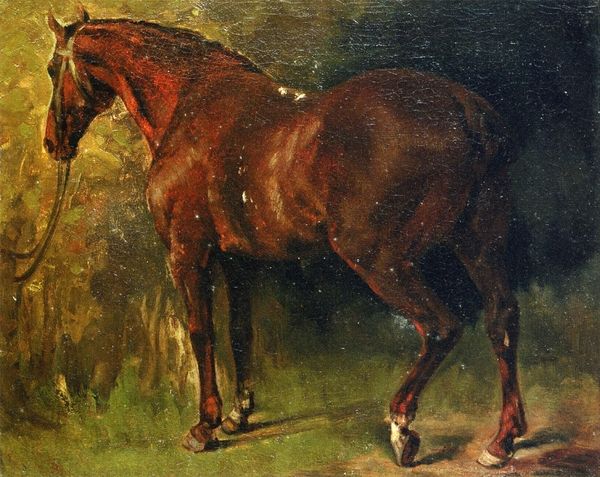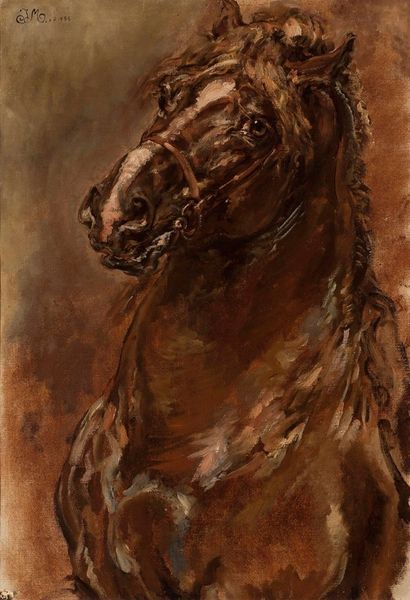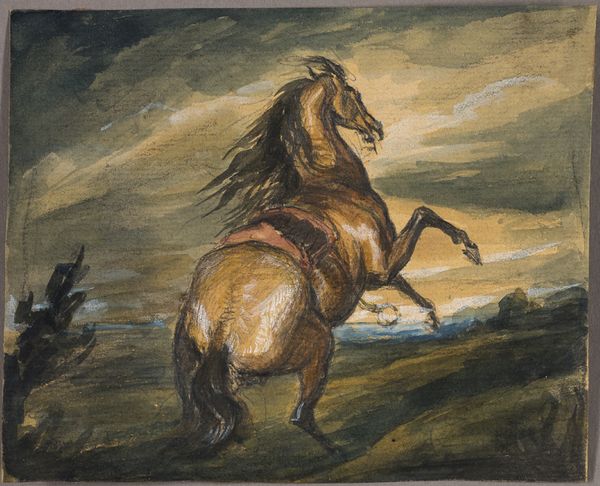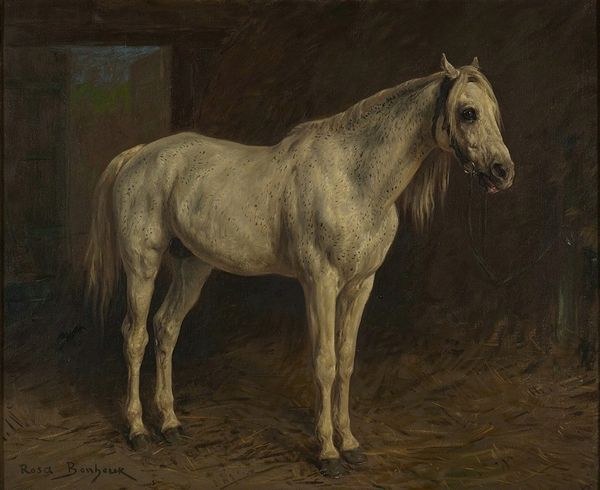
Copyright: Public domain
Vincent van Gogh painted this 'Plaster Statuette of a Horse' in France during the 1880s. The painting appears to depict a model horse such as those used in academic studios. In France at that time, art education was highly institutionalized. The academy taught students to draw plaster casts before they progressed to painting real people and landscapes. Looking at the image we see a possible critique of the academy. The model horse is not depicted naturalistically; rather, it is abstracted, with more emphasis on form, light and shade than on detail. This approach suggests that Van Gogh was exploring modern styles such as Impressionism, which did not follow the strict rules of the academy. To fully understand the painting, we might research the academic art system in France, and contrast it with the emergence of avant-garde movements during the late 19th century. This would help to reveal the artistic and social context in which Van Gogh was working.
Comments
No comments
Be the first to comment and join the conversation on the ultimate creative platform.
